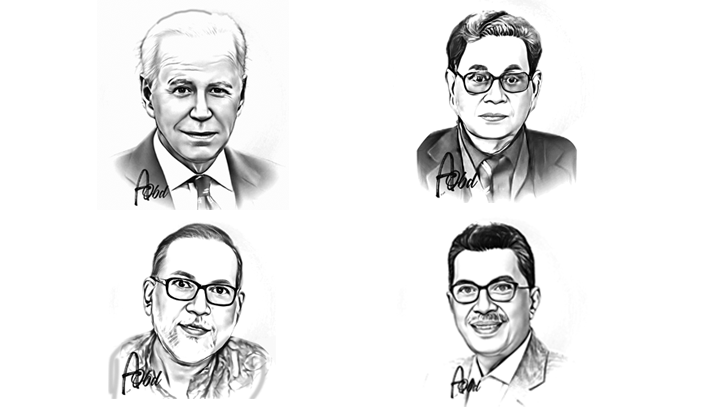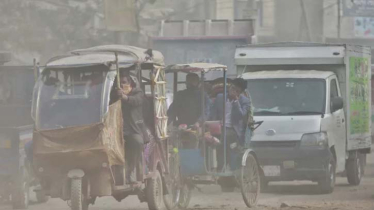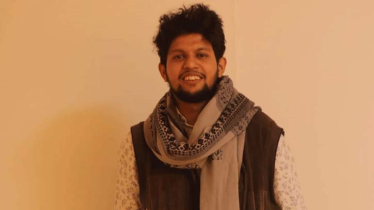
Photo TDM
Bangladesh has seen the intervention of major powers since its 1971 War of Independence and bloody regime changes in 1975 and 1981. The changes, according to analysts, had the involvement of “outside hands” having their own agenda regarding this South Asian country.
“Those like us who covered the 1971 Bangladesh Liberation War closely and the events that followed find a continuity in US policy, first in backing the bloodthirsty Pakistan army and followed by Washington's covert backing to the brutal 1975 coup. For the Nixon-Kissinger duo, Bangabandhu Sheikh Mujibur Rahman – the founding father of the nation – was a "Soviet-Indian proxy".
So Washington's dislike for Arab nationalists like Nasser easily translated into distrust of Bangali nationalists like Mujib and Sheikh Hasina,” writes Indian analyst Sukharanjan Dasgupta in leading India Today online magazine.
In his analysis of 25 March 2023 titled “US penchant for Islamist radicals resurface with human rights report,” Dasgupta points out that Washington is again allegedly working to change the current regime in Bangladesh.
It is a matter of great concern for any Bangladeshi which as the country is aspiring to strengthen its democratic pillar, albeit with hiccups that has led to the current political impasse.
Bangladeshi analysts researcher-author Afsan Chowdhury and Ambassador Humayun Kabir pointed out outside interventions are possible only when there are political impasses as it is easy to meddle in muddy water.
Ambassador Humayun Kabir, who served as Bangladesh envoy in Washington, without saying whether he agreed or not with the India Today analysis told The Daily Messenger that “If we deliver what the people want, then outsiders cannot poke their nose.”
“There are problems in our democratic practices and thus oitsiders to get involved, added Kabir, who heads the private think-tank Bangladesh Enterprise Institute.
The 1975 killing of Bangabandhu Sheikh Mujibur Rahman led to a total change of the pillars on which the nation was founded. Religion became a weapon of politics, the entry of military in running the nation, rehabilitation of pro-Pakistani politicians and Pakistan gained an upper hand in domestic politics. General Ziaur Rahman took the country closer to Pakistan and distanced from India, a country that helped Bangladesh in its fight for Independence.
The elimination of Bangabandhu and almost his entire family also made politics murky and introduced killings, the last major one was the grenade attack on Sheikh Hasina in 2004, to deal with opponents.
The chants by BNP men of seeking a repeat of the 1975 killings are an ominous sign of a conspiracy against the premier.
The diplomatic flurry over the modus operandi of the general elections slated for January 24 gives more credence to Sukharanjan Dasgupta’s analysis. He is a veteran Indian columnist and author of "Midnight Massacre" on the 1975 Bangladesh coup. As chief correspondent of Anandabazar Patrika, he reported on the 1971 Liberation War.
The article is intriguing as it directly accuses the United States of intervening in foreign countries to change regimes to suit its geo-political games, but made blunders to face dangerous consequences.
Prime Minister Sheikh Hasina has repeatedly warned of conspiracies against her nearly 15-year-old Awami League government and this analysis is an eye-opener to that fact. Her main opponent, Khaleda Zia’s Bangladesh Nationalist Party (BNP) has been regularly briefing Dhaka-based diplomats about the country’s current state of politics and its demand for general elections “without Sheikh Hasina” in office.
She slammed Washington over the sanctions on RAB and several others, specially the pressure to spare war criminals from capital punishments.
Sukharanjan Dasgupta writes “The US deep state and policy establishment seems very fond of right-wing Islamist radicals or the 'mullahs'. They used them to bring down Iran's secular nationalist and democratically elected Prime Minister Mohammad Mosaddegh regime when it threatened to nationalise Iran's oil industry in the 1950s.
The Central Intelligence Agency (CIA) used the radicals backed and sheltered by Pakistan to torpedo Afghanistan's Saur revolution that was doing wonders for women's emancipation and the end of clan-based feudalism.”
“They backed the Pakistani military using radicals to attack India or suppress the 1971 Bengali uprising,” he said adding the eliminating Saddam Hussein gave birth to the ISIS.
“The US failures in fighting asymmetric campaigns across the world failed despite its overwhelming military power, because its deep state and military-industrial complex suffered from the: cowboy mindset' with overwhelming emphasis on force and confused approach to politics. In the Islamic world, the US has always floundered because it has often found value in radicals/ mullahs for immediate tactical gains, but then seen them emerge as huge long-term threats.”
Regarding Bangladesh, he writes “Fearing that the US was about to repeat its historical mistake in Bangladesh which India could ill afford for an awful long list of reasons, Pranab Mukherjee ( later President) fought a long verbal duel with US Secretary of State Hilary Clinton during the unfolding of the 1/11 Minus Two saga, reminding her that Islamic radicals in Bangladesh have to be fought by 'homegrown secular forces ' rather than US Marines or some propped up pot-bellied Bengali general.
Mukherjee prevailed and Bangladesh got a free and fair poll that brought back the Awami League to power. The late president has recounted this graphically in his memoirs "The Coalition Years"”.
The writer says point blank that Washington is again trying to change Sheikh Hasina’s regime “using a mix of 'civil society' figures, Trojan horses inside the national power structure ranging from bureaucracy to political parties to military, and media assets.” This is alarming, to say the least!
He pointed out that the latest US human rights report is part of the ulterior plan of regime change and “seeks to boost the radical outfit Jamaat-e-Islami at a time when it has unleashed a hate campaign against the minority Ahmediyyas.
“Leaders and members of Jamaat-e-Islami (Jamaat), the largest Muslim political party in the country, could not exercise their constitutional freedoms of speech and assembly because of harassment by law enforcement authorities.
Jamaat was deregistered as a political party by the government, prohibiting candidates from seeking office under the Jamaat name,” observes the human rights reports on Bangladesh. Ironically, the state department is not in keeping with the issues that the Ahmediyya community raised with US Bangladesh Ambassador Peter Haas about the fundamentalist pro-Pakistan party running a boycott Ahmediyya campaign and pressing the government to declare them as “Unislamic,” Sukharanjan Dasgupta pointed out.
He concluded “So this ardent US defence of Jamaate Islami in the State Department report proves a striking continuity in American policy of backing pro-Pakistan forces in Bangladesh. The US always had problems with passionate nationalists like Indira Gandhi, Sheikh Mujibur Rahman or Gamal Nasser. Regressive regimes like Saudi Arabia or Pakistan have always fitted Washington's bill by being too willing to play by Western strategic interests.”
However Afsan Chowdhury, award-winning researcher and author, told The Daily Messenger that he did not agree totally with Dasgupta’s point. “I do not see any regime change factor. It is more of China factor as Bangladesh is close with Beijing,” he said.
Besides, he added that “Bangladesh does not have a good human rights record either and so it is giving current regime’s foes opportunities to criticise.”
Bangladesh’s politics is unique to see peace in all its affairs. The Awami League accuses General Zia for the 1975 coup by a handful of military officers and definitely it is always odd to deal with BNP. Nevertheless, Sheikh Hasina has tried to put that behind for national unity, but the respence was 21 August 2004 grenade attack and shutting the door on her face, a sitting of head of government, when she went to console Khaleda Zia following the death of her younger son Arafat.
The US, if what Sukharanjan Dasgupta accuses the super power of regime change is true, it should remember 1) Bangladeshis will not accept it despite the “unpopularity factors” of the government and 2) it should not repeat its old way and help ensure political peace in Bangladesh unless it envies the fact that Sheikh Hasina has turned the country from a bottomless basket to a developing one.
TDM/SD








